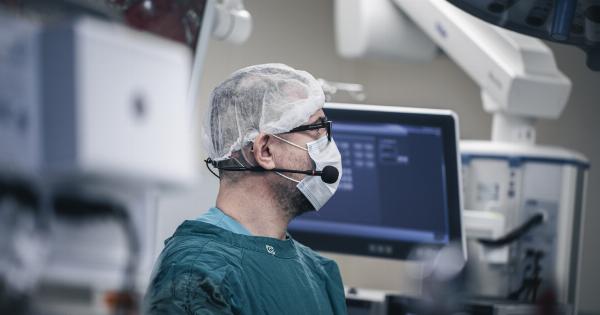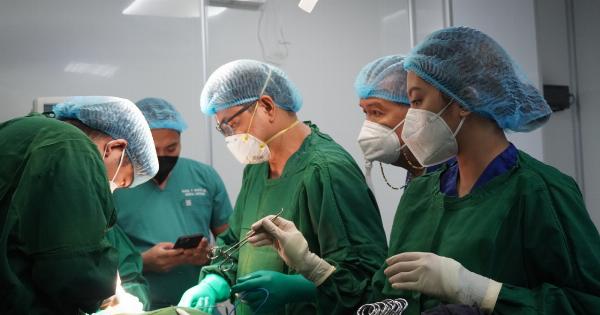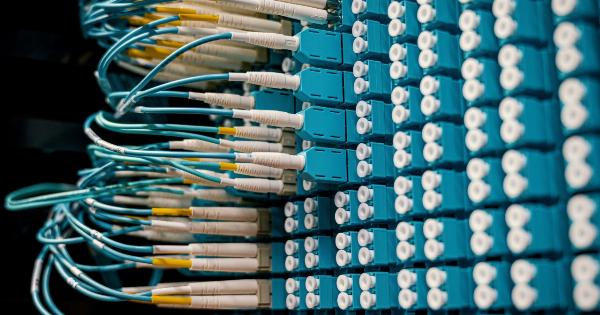A hernia occurs when an internal organ or tissue protrudes through a weakened area in the muscle or connective tissue that surrounds it. Hernias can be painful and uncomfortable, and they may require surgery to repair.
However, there are steps you can take to prevent hernias from developing and to treat them if they do occur.
What Causes Hernias?
Hernias can be caused by a variety of factors, including:.
- Weakness in the abdominal wall
- Chronic coughing or sneezing
- Heavy lifting
- Pregnancy
- Obesity
- Previous surgery
Types of Hernias
There are several types of hernias, including:.
- Inguinal hernia: This is the most common type of hernia and occurs when a portion of the intestine or abdominal tissue protrudes through the inguinal canal in the groin area.
- Femoral hernia: This type of hernia occurs when a portion of the intestine or abdominal tissue protrudes through the femoral canal located near the groin and upper thigh.
- Umbilical hernia: Umbilical hernias occur when a portion of the intestine or abdominal tissue protrudes through the abdominal wall near the belly button.
- Incisional hernia: This type of hernia occurs at the site of a previous surgical incision.
Preventing Hernias
While some hernias cannot be prevented, there are steps you can take to reduce your risk of developing a hernia:.
- Avoid heavy lifting or always use proper lifting techniques
- Maintain a healthy weight
- Eat a high-fiber diet to prevent constipation and straining during bowel movements
- Quit smoking to prevent chronic coughing, which can contribute to the development of hernias
- Avoid straining during urination or bowel movements
- Treat and manage conditions such as chronic obstructive pulmonary disease (COPD), which can contribute to chronic coughing
- Exercise regularly to strengthen the muscles that support the abdomen
Symptoms and Diagnosis of Hernias
Hernias may not cause any symptoms or may cause discomfort or pain. The symptoms of a hernia may include:.
- A bulge or lump in the affected area, which may become more noticeable when standing or straining
- Pain or discomfort, which may be worse when bending over or lifting heavy objects
- Weakness or pressure in the affected area
- Aching or burning sensations in the affected area
If your doctor suspects a hernia, they may perform a physical examination or order imaging tests such as an ultrasound or CT scan to confirm the diagnosis.
Treating Hernias
The treatment for a hernia depends on the location and severity of the hernia, as well as your overall health and any other underlying medical conditions. In some cases, hernias may require surgery to repair the weakened area and prevent further damage.
Other treatment options for hernias may include:.
- Wearing a supportive device or abdominal binder to provide support to the affected area
- Taking pain medication or anti-inflammatory drugs to relieve discomfort and inflammation
- Monitoring the hernia for any changes or complications
Recovering from Hernia Surgery
If surgery is required to repair a hernia, your recovery time will depend on the type of surgery performed and your overall health. In general, recovery from hernia surgery may involve:.
- Taking pain medication and antibiotics as prescribed
- Limited physical activity and avoiding heavy lifting for several weeks
- Gradually increasing physical activity and exercise as directed by your doctor
- Following a healthy diet and staying hydrated for optimal healing
- Following up with your doctor for routine check-ups and monitoring
Conclusion
While hernias can be uncomfortable and may require surgery to repair, steps can be taken to prevent their development. If you suspect you may have a hernia, it is important to see a doctor for proper diagnosis and treatment.


























